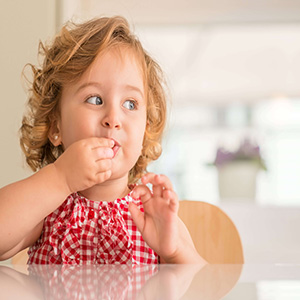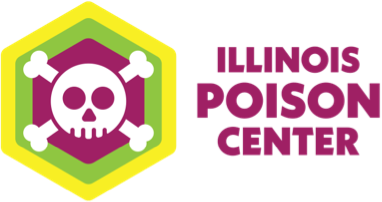Caregivers Guide
Keep the young children in your life safe from potentially harmful substances. The Illinois Poison Center offers our Caregivers Guide to prevent childhood poisoning.

Keeping Children Safe
Protecting children from harm is your No. 1 priority. At IPC, we’re here to help.
Our Caregivers Guide offers practical advice on keeping children safe from potentially harmful substances. That’s our specialty. We encourage you to take the actions below. You’ll feel more confident and assured after taking concrete steps to keep young children safe. Visit the following links for an English version and Spanish version of our Caregivers Guide.
General Safety Tips
Teach children to “always ask first” before eating or drinking anything.
Store potentially harmful substances and products in cabinets with child-resistant safety locks, or up high and out of children’s reach.
Don’t store cleaning products and food in the same areas/cabinets.
Keep perfumes, colognes, cosmetics and other personal care products out of children’s reach.
Keep all potentially harmful products (cleaners, cosmetics, medicines and items used for home repair, gardening and automobiles) in their original container with original labels.
Always read the labels and directions for use each time you use cleaning products and other possible poisons.
Rinse out all empty containers (those used for bleaches, cleaners, etc.) before discarding.
Make sure the Illinois Poison Center’s telephone number is stored in or near each phone in your home.
Medicine Safety
Curious toddlers like to get into everything. As a caregiver, you can protect toddlers and older children from medication. Take these precautions:
Keep medicines in their original containers and store them in locked cabinets.
Do not place or store medications within the reach of children.
Use child-resistant containers for medications carried in your purse. Please note: Daily pill counters are not child-resistant!
Dispose of old or unused medications. Rinse out containers before throwing them away.
Never call medicine “candy” or make a game out of taking it.
Do not take or give medicines in the dark or without your glasses.
Handbag/Purse Safety
Purses, handbags, backpacks and diaper bags are filled with potentially harmful substances. The best thing you can do as a caregiver? Stop children from playing in them. If enough is ingested, common items such as make-up, perfume, ointment creams, medication and laxatives can be harmful. They also are a choking hazard.
Plant Safety
Plants brighten a room and beautify your yard. But some indoor and outdoor plants can be toxic. To prevent plant poisoning:
Keep all houseplants out of children’s reach.
Know the names of all your plants, both indoors and outdoors. Consult a nursery or florist to identify unknown plants.
Teach children to never put mushrooms, berries or any part of a plant in their mouths.
See our lists of toxic plants: mild/moderately toxic and highly toxic.
Access our free online poison prevention education training, educational materials and presentation tools.
Related Resources
My Child Ate

It happens often. Children eat something they shouldn’t have. Get expert advice on what to do next.
View All